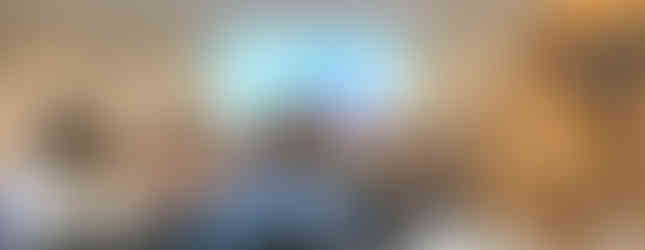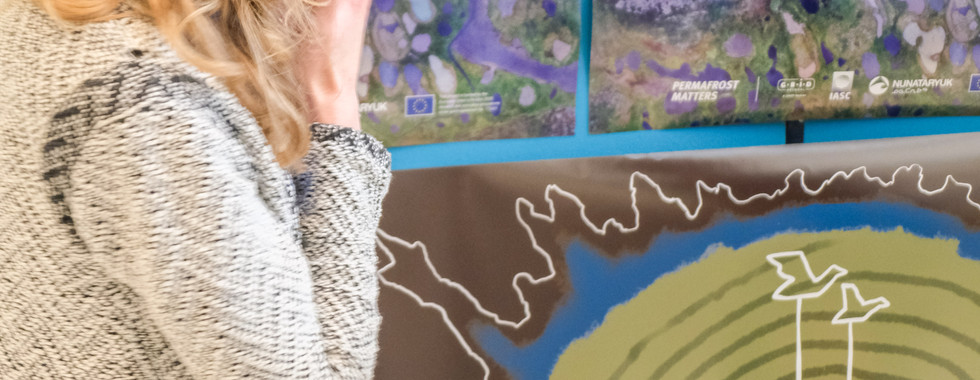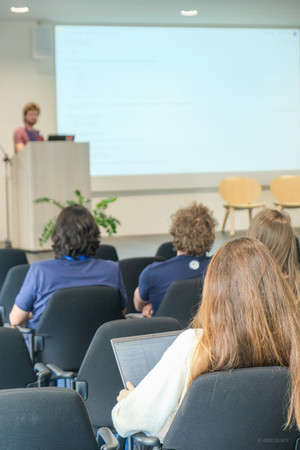It’s a wrap! Takeaways from the Belgian Polar Community Day 2024
- APECS Belgium
- May 16, 2024
- 7 min read
Updated: Jun 27, 2024

Robots! Posters! Workshops! And most importantly, a friendly catch-up with all our amazing polar colleagues!
It’s a wrap on this year’s Belgian Polar Community Day! Since 2022, APECS has organized a yearly networking event for all polar scientists, adventurers, and enthusiasts in Belgium. In 2022, we held a photo exhibition at the Institute of Natural Sciences in Brussels. In 2023, we teamed up with Talk C.E.C. to host an evening of polar fun and discovery at their amazing gallery alongside the “Seas and Oceans” exhibition. And this year, we took it up a notch and partnered up with VLIZ to host our very first full-day event: the Belgian Polar Community Day 2024.
AND WHAT A DAY!
Many of us rose bright and early (before the sun, in some cases!) to catch our trains to the coastal city of Ostend, where the event was taking place at the InnovOcean Campus.

Early arrival in sunny Ostend. Photo credit: Marie Cavitte.
We started the day with some opening words from APECS Belgium & VLIZ as well as our co-organizers. Jan Mees, director of VLIZ, welcomed us to the institute and Leandro Ponsoni introduced their amazing work. Elise Kazmierczak and Jill De Visscher gave a brief overview of APECS Belgium's mission and the various activities we conduct for schools and the general public. Frank Pattyn then presented the Belgian National Committee on Antarctic Research (BNCAR), followed by David Cox from BELSPO who introduced the various new funding schemes for polar research. Karen van Loon gave a brief overview of all the international relations and policy work the Egmont Institute does, and Mieke Sterken explained the International Polar Foundation's projects as well as outreach programs. Finally, Tina Schoolmeester from GRID-Arendal presented the incredible Arctic Permafrost Atlas which was on display throughout the event (a few lucky ones got to walk away with a copy!).
Photo credit: Louise Delhaye.
The Arctic Permafrost Atlas is a fantastic book filled with pictures, maps, infographics and art. On top of being an impressive example of scientific collaboration and communication, it is also a very timely piece showcasing the extent of the threat climate change poses to Arctic communities and infrastructures, as well as the dangerous feedbacks permafrost has on global warming. We were overjoyed to be able to bring more attention to this incredible book and display its accompanying exhibition at our event.
If you would like to learn more about the Atlas and read it for yourself, you can check out GRID-Arendal’s website. We also wrote a blog post about it earlier this year.
Tina Schoolmeester presents the Arctic Permafrost Atlas, and the "Permafrost Matters" exhibition. Photo credit: Louise Delhaye.
Our attendees had the difficult task of choosing between different workshops during our morning and afternoon sessions. We had the privilege of welcoming five incredible trainers to teach us about SciCom, AI, policy, data management and paper writing!
Breaking the Ice with Science Communication - from Tom Janssen
Tom Janssen, founder of Creators for Climate, taught us how to better communicate our science on the internet in the age of social media and podcasts. We explored how to adapt the message to the medium and the audience by doing exercises ourselves. Afraid you missed out? Don’t worry, although there’s nothing like an in-person meeting, Tom thought about you too. Here are some resources he made freely available for you:
Breaking the Ice with Science Communication by Tom Janssen. Photo credit: Louise Delhaye.
FAIR data management - by Marie Robberecht and Alice Pohle
Marie Robberecht and Alice Pohle, from the Data Center Division of the Flanders Marine Institute (VLIZ), introduced us to the concepts and applications of the FAIR data principles. We learnt how to make our data easily Findable online, how to make those data Accessible, how to ensure our data are Interoperable for everyone and hence how they can be made Reusable (all the conditions and licenses are clear, aiming always for Open Access).
FAIR data management with Marie Robberecht and Alice Pohle. Photo credit: Louise Delhaye.
How to enjoy writing your next scientific paper - by François Massonnet
François Massonnet, a professor at UCLouvain, taught us how to plan and write a science paper, choose our titles and structure our sentences in a way that elevates our message. And if you would like to get some of those top tips, François has generously made his slides available here!
How to enjoy writing your next scientific paper by François Massonnet. Photo credit: Louise Delhaye.
AI made easy: explainable machine learning with little code - by Joppe Massant
Joppe Massant, a researcher at the Royal Belgian Institute of Natural Sciences, did an amazing job turning a complicated topic into something easily accessible to anyone. With their laptops, participants could follow the step-by-step exercise he was showing them.
AI made easy: explainable machine learning with little code by Joppe Massant. Photo credit: Louise Delhaye.
Translating Science into Action: Strategies for Engaging Policy Makers - by Karen van Loon
Karen van Loon, researcher in the European Affairs Programme at the Egmont Institute, gave us a great introduction on how to engage with policy makers. We learned about the importance of taking the time to research our policy audience: who they are, what their motivations are. We discussed how to deliver information, from the initial hook to the different story lines we can use, and did some live practice in the audience! We also discussed how it takes time to build trust and that connections should be nurtured over time. Really fascinating topic (which you can dive back into with the presentation slides!) and we encourage you to reach out to Karen and other members of the Egmont Institute if you would like to discuss more in-depth about this topic!
Translating Science into Action: Strategies for Engaging Policy Makers by Karen van Loon. Photo credit: Louise Delhaye.
After the lunch break, we were treated to a tour of the Marine Station Ostende (VLIZ). The VLIZ experts did a wonderful job of explaining how their labs are set up to do many kinds of oceanographic measurements! We were able to see the exact copy of the Thornton Buoy, shown by Thanos Gkritzalis, which is part of the ICOS network and enables continuous year-round measurements in one offshore location. Measurements include the seawater temperature and salinity, and the CO2 concentration of both atmosphere and seawater. Coraline Leseurre (our very own :-) ) showed us the lab where the carbonate system parameters of water samples brought back from expeditions are measured, including pH, Alkalinity, Dissolved Inorganic Carbon, Nutrients and Dissolved Oxygen. Fred Fourie, the senior marine robotics specialist of the VLIZ Marine Robotics Center, very passionately showed us the various autonomous robots that are used to make oceanographic measurements (vertical profiles, as well as horizontal transects). Marine Biologists at the VLIZ Marine Observation Centre, Arienne Calonge shows us the acoustic moorings that are deployed at sea to listen to underwater sounds, and Jonas Mortelmans explained a little about how seawater microorganisms are concentrated to then be analyzed under the microscope for population studies. People also had the chance to see the new workboat Abbé Mann, recently acquired by the Flanders Marine Institute (VLIZ) to facilitate coastal activities such as launching divers, the deployment of small moorings or robots, and to increase geophysical/biological/chemical surveying or seawater sampling.
Visit of the Marine Station Ostende (VLIZ). In order, photos by Louise Delhaye: the ICOS buoy, the robotics lab with Fred Fourie, an autonomous underwater vehicle (AUV), an unmanned surface vehicle (USV), Fred Fourie holding a small plastic glider. In order, photos by Marie Cavitte: Jonas Mortelmans explains how microorganisms are studied, Coraline Leseurre presents the ICOS lab, and the view from inside the new workboat Abbé Mann.
We also had a dedicated poster session in the afternoon where many of our attendees presented their research: a great way to meet new and old colleagues from north and south, and start off some new connections!
We ended the day with a wonderful networking reception where everyone was invited to enjoy (local) beers and drinks, delicious burgers from the famous VLIZ-proximal food truck, and continue to weave those new connections made during the day, catch up with colleagues from past polar expeditions, meet new PhDs, laugh about failed proposals or dream about new ones…
All in all, the entire APECS Belgium team was really glad to see so many attendees join us for the day, and hopes to continue this tradition for long to come!
Posters, networking, and burgers! Photo credit: Louise Delhaye.
Finally, no event organized by nerdy ECR researchers is complete without… some graphs! We are very glad to reveal that our attendees were very balanced in terms of gender and career level. Attendees came from many different institutes, universities, private companies, with a range of profiles from PhDs to researchers to policy makers, funding bodies and engineers, etc! Perfect mix to ensure a successful networking event!
Some statistics from the Belgian Polar Community Day 2024!
If you attended our event, we would love it if you could fill in this quick feedback survey, so we can make our next event even better (or equally amazing ;-) ). It shouldn’t take very long!
Check out the "Resources" page on our website, where you can find the presentation slides from the workshop trainers and other useful and interesting information! And for some photos of the event, check out our online gallery.
We would like to thank all our co-organizers and sponsors, who made this day possible, thanks to their financial, in-kind and collaborative support! In random order: BNCAR, BELSPO, the Egmont Institute, the International Polar Foundation, UGent, APECS International.
In particular, we would like to thank our co-host: VLIZ, and particularly Wieter Boone, one of our mentors, who, since our last networking event, was always an amazingly supportive and helpful force in this adventure! As well as the APECS VLIZers, our undercover agents who carried a heavy load in all the in-situ preparations!

We cannot wait for next year’s Networking Event, so stay tuned for more!!! And if you are an ECR, working on/in polar regions, and you feel curious about APECS Belgium, don’t hesitate to reach out, we’ll be glad to have you!
Photo credit: Louise Delhaye.








































































































Comments